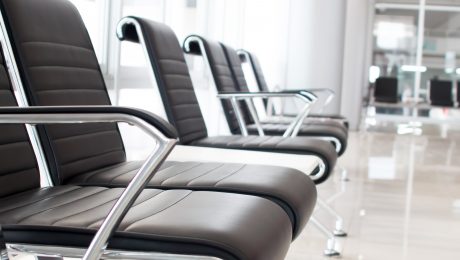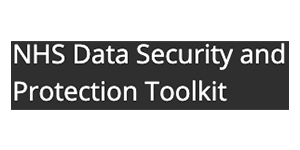Tele-First study reported in BMJ
With the publication in this week’s BMJ of the Tele-First study into the telephone first model of general practice, you would expect me to read carefully and respond. So here are the headlines:
- 65% of patients report being phoned by a GP in less than one hour.
- 56% of patients find it more convenient vs 22% less convenient
- Large improvement in length of time to be seen, 20% move in GPPES survey.
At a time when we are told repeatedly that patients are having to wait ever longer to see a GP, often measured in weeks, these are quite astonishing figures, all quoted direct from the report. But, dear reader, these are not the headlines you have seen in Pulse or the BMJ Editorial are they? Studies, and the interpretation of studies, are political. We have an interest, and so does everyone else.
Therefore the first thing I want you to do is read the full text so you can make your own mind up independent of headline writers. It is much more detailed than the print version, framed by an angry looking GP model and a scared looking patient model, giving more space to a commentary piece than the actual study.
There is much to absorb but for brevity I’ll comment on the summary section.
What is already known on this topic
- GPs are struggling with the current demands on general practice and looking for effective ways to manage patient demand
- Claims have been made, reproduced in NHS England literature, that a telephone first approach, in which all patients wanting to see a GP are asked to speak to a GP on the phone first, results in major cost savings for primary care and reductions in secondary care costs
We do not make those claims, they were made on the home page of PPC Doctor First, a 20% drop in A&E and £30,000 saving per GP per annum. I’m grateful to the authors for proving these false. *
What this study adds
- In general practice, many problems can be dealt with by a GP on the phone
- The new telephone first approach resulted in more phone calls, fewer face to face consultations, and, on average, more time spent consulting
- There was wide variation between individual practices, including large increases and large decreases in workload after adoption of the telephone first approach
- There was no evidence that the telephone first approach would reduce costs of secondary care
In a way it is disappointing to see no secondary care effect, but not unexpected and unless the evidence changes, that is what we accept.
But what has really got GPs aerated is this finding of “more time spent consulting”. This was derived from data sent by us to the study, which we have not used to make a calculation on workload for several reasons: much of it is missing (and as the authors state, had to be imputed), it shows wide variation, and it cannot account for total workload. Let’s consider:
Workload = demand/efficiency + non-clinical work + waste
We do not have a reliable way to measure the total, and given that the study used only one of our three datasets, I don’t see how they can make this assessment. Just one example: many practices have told us of the drop in home visits, each one saving the time for many surgery consultations. This is not measured. It may be a good thing to have more recorded time consulting, if less time is wasted. Not only does this finding seem to me unsafe, it also brings us back to the question of purpose, for the study and indeed for the NHS.
If the purpose is to minimise GP workload, we can do so very simply: design the working day so you see 4 or 5 patients in the morning, take a good lunch and a nap, then spend a little time in personal reflection and development before heading home., purpose achieved.
I’ve worked with a lot of very hard working GPs and they would not be satisfied with that purpose. No, the purpose of general practice and therefore the purpose of change must be to improve patient care.
There’s a missing term in the workload formula, and that is “unmet need”. Behind those words lies untold suffering and frustration of patients, heard perhaps by a receptionist (one wrote last week, “I dread having to tell the patients there’s nothing left”) while others do not even get through on the phone. This is the dirty secret of general practice, and over many years we’ve measured it in practices we’ve helped, variable around an average of 14%.
One in seven patients is told to go away. Although we offered this data to the study team, they didn’t want it and took no account of it.
Their figures cannot distinguish between the workload of one GP helping 30 patients in a day, who had all waited two weeks, and another helping 40 patients in a day, on the same day they called. It could be life changing for those 10 patients, indeed all 40 of them for not having to suffer two weeks of disease, pain, or anxiety.
Both GPs may have equal skill and compassion, but the difference comes from efficiency.
By framing the question on workload rather than efficiency, the study misses a huge opportunity. It offers no help on how to become more efficient, and while it found wide variation in performance, the data were munged into averages rather than investigating in detail why the best ones worked better.
I’ll tell you a secret: we’re in this for the patients. To help the patients we have to help the GPs be more efficient. There is never a final answer to the method, there is only “the best we know for now, while we look for the still better way”.
We’ve helped around a million patients so far, with another 50,000 to be added in the next month. and as telephone triage (done well) is more efficient than pre-booked face to face, digital triage is already proving to be the next step. Sometimes we fail, but we press on.
Every day over 100,000 patients are told by practice receptionists “Nothing left, call another day”. Not on any basis of clinical need, just because the GPs have no slots.
It’s my personal mission to eliminate that phrase. What’s yours?
Regards,
Harry Longman
* The 20% A&E effect came from my 2011 study, based on pioneer practices with up to 10 years running the model, and promising at the time. The figure was copied by Dr First but never attributed. We could not show that the effect was reproducible, and therefore stopped making any specific claim about A&E 3 years ago. £30,000 saving? We make no such claims, although if GPs tell us about savings we are happy to report them. Why did NHS England swallow this?
@harrylongman
- Published in News
Is there a crisis in clinical consultations?
Quite a week but let’s put all that to one side and reflect on a fabulous article I came across, which put into perspective what we are trying to do.
Dr John Launer of HEE asks Is there a crisis in clinical consultations? Although he sets the paper in a hospital context, most of his working life has been in primary care and the same principles and questions apply. It’s all about
“the idea that making it easier for clinicians simply to talk with patients may solve many problems that managers might assume need far more complex technological solutions”
Aha. Let’s add to that the assumptions of politicians, along with structural, financial and all kinds of other complicated solutions.
Launer quotes Dr Gordon Caldwell who has outlined ten fundamental conditions to optimise consultations, including:
- The patient should be as prepared as possible
- The clinician should be as prepared as possible
- Ready supply of information into the consultation
Telephone consulting pioneer Dr Steve Laitner contrasts traditional general practice in a tweet, “like having a day of back to back meetings every ten minutes with no idea who you’re meeting and no agendas”
Stressful and far less productive than it might be.
Yet patients are willing to spend their own time writing and preparing when they seek help – we need the system to make it available to GPs.
A recurring theme of patient feedback on askmyGP is “I was able to gather my thoughts before seeing the doctor. I so often forget things when I’m in there.”
Clinicians value enormously what patients write, whether preparing for a phone or face to face consultation. Our task is to develop the handful of questions which provide the most useful information, and I’m delighted to say that researchers are interested in this too.
Our other focus is to make online access so easy and attractive that it becomes the norm. We are over 30% in one practice and it will take a lot of experiment and refinement but I’m looking forward to reaching 50%, which I hope will make a big contribution to clinical quality.
I’ll leave you to look up all ten principles in Launer’s article, but here’s one you will like: “The clinician should be regularly refreshed”. He doesn’t say what with.
Harry Longman
askmyGP & GP Access Ltd
- Published in News
On G-Cloud 9
On cloud 9, or, “In a state of blissful happiness” is perhaps a little overstating it, but we are delighted to be on the government’s G-Cloud 9 Procurement Framework from 22nd May 2017. [Note G-Cloud 9 was withdrawn in July 2018. We are now on its successor G-Cloud 10.]
Phrases like “procurement framework” tend to bring me back down to earth with a bump, but I think this one could mean something really good, and I quote from the gov.uk Digital Marketplace:
“Buying services through frameworks is faster and cheaper than entering into individual procurement contracts.”
Right, so there’s one agreement set up between the Crown Commercial Service and us, following all the OJEU rules and thoroughly tested for compliance with all the relevant standards: NHS IGToolkit, Clinical Safety standards for software SCCI 0129/0160, secure hosting and communication on N3, you name it, all the painful, boring but essential stuff.
Yes it has been painful and I pay tribute to all the GP Access team and our partners who have done such a grand job in getting us there. It is right and proper for the process to be thorough as patient safety and information security are paramount. We have seen too much lately of what can go wrong, yet we must not lose sight of the great benefits that technology can enable for our health service.
In the first couple of weeks we’ve seen over 700 patients use the new askmyGP to get help online. One emailed Concord practice at 9.14am last Monday, a time when patients in most practices would still be hanging on the phone, trying to get through. She already had her problem sorted by the GP and just wanted to say thank you for the outstanding service.
Now that’s what really gets me on cloud 9.
Harry Longman
07939 148618
PS Do explore our new askmyGP website, where all the services under What We Do are on the framework.
PPS The application process did have its lighter moments, my favourite being where you have to agree to the statement that “all the above statements are true”. Unbeatable logic.
- Published in News
Open all hours
What an exciting week in NHS IT! Sorry I’ve been hiding for a month but we have all been intently focussed on launching version 2 of askmyGP. It draws on our evidence from 46,000 patient episodes in version 1, but the software and delivery mechanism are all new.
So if I said the rollout of the new system went exactly to plan, all pigs were fed and ready to fly, you’d call me a liar and you’d be right.
We were ten days late going live and patients had to go back to the telephone. We had one of those unexpected problems that got through all the testing and didn’t appear until the real world stomped in. We had to spend the weekend fixing it.
Then it worked. Already we’ve had good feedback from the first 300 patient uses, and some great suggestions from the first 7 practices which we have already implemented.
So what’s new? I won’t do too much detail for now but the step in thinking is all about flow. We know about demand, we know it’s predictable and very nearly flat (BMA refers again to “soaring demand” in its manifesto. They haven’t bothered to measure) but we know there’s no simple way to cut demand (we’ve tried like everyone else, and it doesn’t work).
The demand is the demand. But we can do much better if we make it flow, from entry to completion. The new askmyGP is designed exactly to enable that frictionless flow.
Delivered not on NHSmail but over N3, the new system is designed for greater security and reliability…
And then of course Wannacry happened… we switched askmyGP off on Friday night as a precaution but found no evidence of any incursion, so came back on Saturday lunchtime. Already a couple of dozen patients have entered demands at the weekend. They know not to expect help until Monday, but that helps the practice smooth out the morning rush on the phones.
Aha, the beauty of being open all hours, but not there all hours.
Can’t wait to tell you more, it is so exciting, but it’s getting late.
Harry Longman
PS Not one but two practices complained to me that demand has been very low the last couple of weeks. I put it down to three causes.
1. Weather. In a demand led system, you get the immediate benefit of the sunshine dividend. If you’re booked up three weeks in advance, you never notice.
2. Randomness. Knowing your average demand and planning capacity for a bit more means that most days are less busy than planned.
3. Anxiety demand has dropped – both practices launched six months ago and patients have got used to the idea that there’s no need to plan illness in advance – the GPs are there when you need them.
Happy days! Now try getting Pulse to publish that.
- Published in News
Thurmaston features in Pulse: how we saved £90k per year
Dr Kam Singh explains how the practice saved recruitment costs using a precursor to askmyGP.
- Published in News
- 1
- 2






